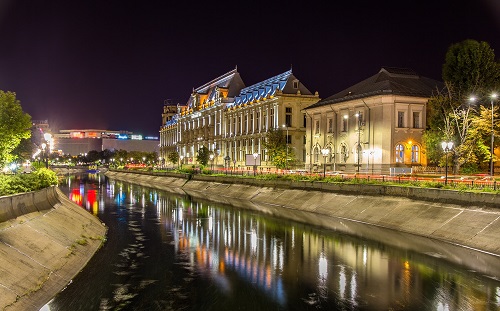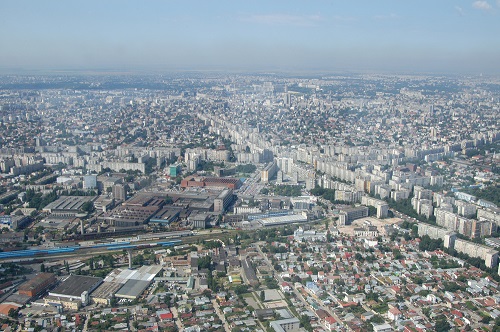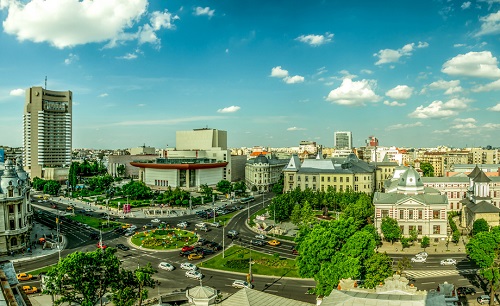If you are intending to give birth in Romania, you will need to make a decision early on regarding whether you would like to use the public or the private sector. It should be noted that the public healthcare system is well below the standard of those in neighbouring European nations, and many expats opt for private cover. Most expats recommend that the public health system should be avoided if at all possible.
How to decide on a birth plan
A birth plan is a list of what you would like to have happen during labour and afterwards. It is written so that your doctor knows what your wishes and expectations are.
- Where do you want to give birth?
- Who do you want to have with you (e.g. your partner)?
- What kind of birth do you want (e.g. vaginal birth or a Caesarian)?
- Do you need any birthing aids?
- Do you want pain relief, and if so, what kind?
- What kind of birthing environment would you prefer?
You can find a downloadable birth plan in Romanian here. You will obviously need to get this translated if you are not bilingual.
Home births are not common in Romania and account for a very small number of births. It is illegal for doctors to attend home births, and they are usually attended by a doula or an independent midwife.
C-section deliveries, episiotomies, and maternal mortality rates are very high. The number of C-sections is increasing; they are performed on nearly half of all births and not always for sound medical reasons. If you do not want a Caesarean, ensure that you make your wishes very clear; likewise with induced births.

Romanian public maternity wards are known for having a high degree of ‘obstetric violence’ – the use of procedures that are not always medically necessary, such as C-sections and episiotomies. Patients have also complained about verbal abuse.
Care in the private sector is substantially better, with state of the art equipment, a ban on corruption, and attention paid to birthing plans. There is also the option for alternative birthing methods, such as water and Lamaze birth.
Maternity care in Romania
In 2016, medical organisation MediHelp conducted a survey of mothers, in order to assess care in the public healthcare system. 35% said they would choose a public hospital for financial reasons, if they did not have health insurance. 65% of respondents said that they either intended to, or would be more comfortable to, give birth within a private hospital. Meanwhile, only 36% of the women who had already had a baby in the public sector reported that they were satisfied with their care, in comparison with 91% of women who had given birth in private hospitals. 86% of the women said they felt at risk of developing viral and bacterial infections in Romanian hospitals and would prefer to give birth overseas.
There is a shortage of paediatrics, practitioners, and midwives in the public maternity sector. Conditions such as child anaemia and neonatal deaths are higher in Romania than in the rest of the EU. Corruption is rife throughout the country’s public health sector. Although giving birth in the public sector is supposed to be free, patients usually find that they end up handing over bribes (Șpagăs) to the medical staff. For all of these reasons, most expats choose to take out private healthcare. However, it should be noted that, ironically, the reputation of medical personnel in the public sector is better than that of those in private clinics and hospitals, in terms of actual medical skill.
Once you have registered your pregnancy with your GP, you will be given a referral to visit an obstetrician-gynaecologist. You should be set up with a sequence of tests, for instance blood tests and ultrasounds, on a regular basis. You can choose your OB/GYN, as long as they work with the hospital that you intend to have your baby in.
Some hospitals may be certified under the international Baby Friendly Hospital Initiative (BFHI), supported by UNICEF.
Mothers stay for, on average, four days in hospital after giving birth, depending on their circumstances.
Average costs range from €3K to €6K, although you will find that a C-section is more expensive.
Maternity leave and allowance (concediu medical şi indemnizaţie pentru maternitate) are granted to pregnant women, or women who have given birth during the last six to eight weeks (postpartum women), for a total of 126 calendar days.

Maternal risk leave (concediu medical şi indemnizaţie de risc maternal) is granted to pregnant or postpartum women who are not on maternity leave and whose employers cannot guarantee working conditions that are free of risks to their health or that of their child. Maternal risk allowance may be granted for up to 120 days before and after maternity leave, but you will need a doctor’s note.
You will also need to have contributed for at least six months of the last 12 months, prior to your maternity leave, to the social insurance system.
Maternity allowance is paid for 126 calendar days while you are on leave. This period is made up of 63 days of leave before the birth (antenatal leave) and 63 days after the child is born (postnatal leave). The first 42 days of leave after the child is born are compulsory. The remaining 84 days need not be taken if you do not need them, or they can be taken earlier, before the birth, or later, after the birth.
Maternity allowance is equal to 85% of your average monthly income during the last six months prior to maternity leave. The allowance is not subject to income tax, but you will need to pay a contribution of 10% of it to the health insurance system.
Any child that is born inside the country must be officially registered.
After the birth, you will be issued with a “live birth” certificate (certificatul constatator al nasterii) by the hospital. You then have 15 days to visit the city hall (Primăria) of the county in which your child was born to register the birth.
Will my baby be a Romanian citizen?
Your child will only be a Romanian citizen if one of their parents is Romanian.

